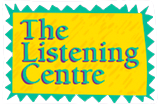Adults We Help
Ghost of a Childhood
An Attention Deficit Disorder, a problem with reading, a difficulty relating to others, does not go away when the school years are over. This is the bleak reality that some college students and workers soon come to discover. There are ways to compensate for the ‘old’ listening-related difficulties until the deep-rooted challenges resurface in a job interview, a training course, a career change. That all too familiar feeling of isolation or social inadequacy can be reignited after a move to a new job, a new city or after a break-up. The ghost of the past are quick to come back to haunt us and to shake our self-confidence and self esteem.
There are also those people who, for lacking of inadequate education when they were young, find themselves illiterate in our developing world where written language is necessary for survival.
For these adults, the Listening Training program can help.
- Struggling adult student
- Never-ending ADHD
- 'Old’ learning disabilities
- Chronic underachiever
- Nagging feeling of social inadequacy
Performing Artists – Singers/Musicians
The early work of Dr. Tomatis, consisted of helping Opera Singers to sing better by improving the way they hear their own voice. This was the starting point of his life-long work on listening and on the ear-voice connection at the root of the program we use at The Listening Centre. One of Tomatis’ claims to fame is the long list of celebrities he helped including Maria Callas and Gerard Depardieu
Listening Training programs are available for a more proficient use of the voice for singers, performing artists, actors, teachers and other voice professionals as well as for musicians who wish to improve and fine-tune their playing.
- Musician, Singers and Actors
- Tone quality and range in singing
- Voice production (enunciation, articulation)
- Perception and application of rhythm
- Posture and breathing
- Musical appreciation
- Fine-tuning instrument playing
- Decoding/reading musical scores
- Stage fright
Second Language Acquisition
This application is based on Tomatis’ discovery that all ethno-linguistic groups have their own auditory spectrum which is limited to the specific sounds (phonemes) of their own language. Learning a new language implies an ‘opening of the ear’ to the sound range of the new language to process the phonemes faster and with more ease. The high drop-off rate in most language schools is a clear indication that this ‘ear opening’ is difficult to obtain for adults. More dramatic is the fact that the number one obstacle for immigrants to find a job a new country is their difficulty and often, inability, to learn the new language. This is consistent with the well known fact that people rarely lose their accent when they learn a new after the age of 10 to 12
A listening training serves to “acclimatize” your ear to the language you wish to learn, whether it is to better comprehend or to speak with more ease and flow.
- English as a second language
- Ease and spontaneity in conversing in a new language
Skill Enhancement/Professional Development
Speaking with charisma and impact, negotiating with a client, boss or co-worker, promoting products, services or ideas, thinking creatively – these are all skills related to listening. Listening training is an excellent catalyst to facilitate and improve communication an organizational skill as well as mental clarity, motivation and self-confidence. Anyone from front-line staff to CEOs can benefit from a Listening Training program.
- Re-entering the work force and job transitions
- Corporate applications
- Management and organizational skills
- Interpersonal skills
Well Being
People find they are more relaxed, productive and creative after a Listening Training program.
The program also has soothing and regulating effects on those who have a hard time coping with stress or who are subject to bouts of anxiety, fatigue or depression and is not the main issue.
Expectant mothers who benefit from sound stimulation program report an easier and faster labor and delivery. For the mother, this is significant for her well being; for the child, this quality of life right from the beginning.
The listening training can help the elderly maximize their listening in the case of loss of hearing and balance which tends to deteriorate with age. The person may also experience renewed interest and energy for activities and social interactions. In some situations, the program facilitates independent living.
It also can be beneficial for adults with a low energy level or feeling of “running out of steam”.
- The feeling of ‘running on empty’
- Addressing the 'void within’
- Stress Management
- Self awareness and personal development
- Expectant mothers
- Elderly
Concussions & Traumatic Brain Injuries
While the Listening Training program is primarily geared to developmental issues, the sound stimulation can also have positive effects on people who suffer from traumatic brain injury as a result of a concussion or a stroke.
The program is more effective in mild to moderate cases when the symptoms are similar to the listening-related difficulties described in the other applications. It is most effective in cases of sound sensitivities, foreground-background sound discrimination which make any noisy, busy environment extremely trying. It is also helpful in areas associated with balance and movement including eye movements in reading, which tend to provoke nausea and gagging. Focus and attention span are also facilitated. There is often an increase in level of energy and a decrease of the recuperation time following an overtaxing activity (exposure to noise, excessively lengthy physical or mental activity).
The Listening Training program is recommended after the traditional rehabilitation programs have run their course. This is about one year after the injury occurred.
Children who suffer a concussion as the result of a sport accident can also benefit from sound stimulation.
- Hypersensitivity to sound and movement
- Intolerance to noisy/busy surroundings
- Balance and Nausea
- Fatigue
- Reading
- Attention Span
- Brain Fog
 Skip Navigation
Skip Navigation